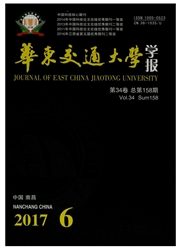

 中文摘要:
中文摘要:
基于双渠道销售—单渠道回收的再制造闭环供应链模式,根据政府和制造商之间的约束函数,讨论了政府约束下的双渠道再制造闭环供应链的定价决策问题。建立了三种情形下的决策模型并比较分析了决策效果,结果表明:再制造闭环供应链需要政府的积极参与和约束。政府无约束时,废旧产品的回收量最少,制造商和零售商利润最低。政府实施约束时,随着单位奖惩因子的增加,回收量不断增加,回收商和处理商的利润也逐渐增长。制造商和零售商合作决策是最优定价模型,此时的回收量最高,双方盈利也最大,比二者独立决策的效果更好,政府应积极引导制造商和零售商实现合作。
 英文摘要:
英文摘要:
Based on remanufacturing closed-loop supply chain of dual-channel selling and one-channel recy-cling, in view of the constraint function between the government and manufacturer, this paper studies the remanu-facturing closed-loop supply chain pricing decision under government's constraints. Three decision models are es-tablished and the decision results of these models are compared. Results show that remanufacturing closed-loop supply chain needs government's active participation and constraints. There would be the lowest recovery price and the least profits for both manufacturer and recycler without government's constraints. The recovery quantity and profits would increase with the growth of government's rewards and penalties when the government imple-ments constraints. And it would be the optimal pricing model when the manufacturer and recycler choose to coop-erate with each other, which leads to the highest recovery quantity and profits.
 同期刊论文项目
同期刊论文项目
 同项目期刊论文
同项目期刊论文
 期刊信息
期刊信息
